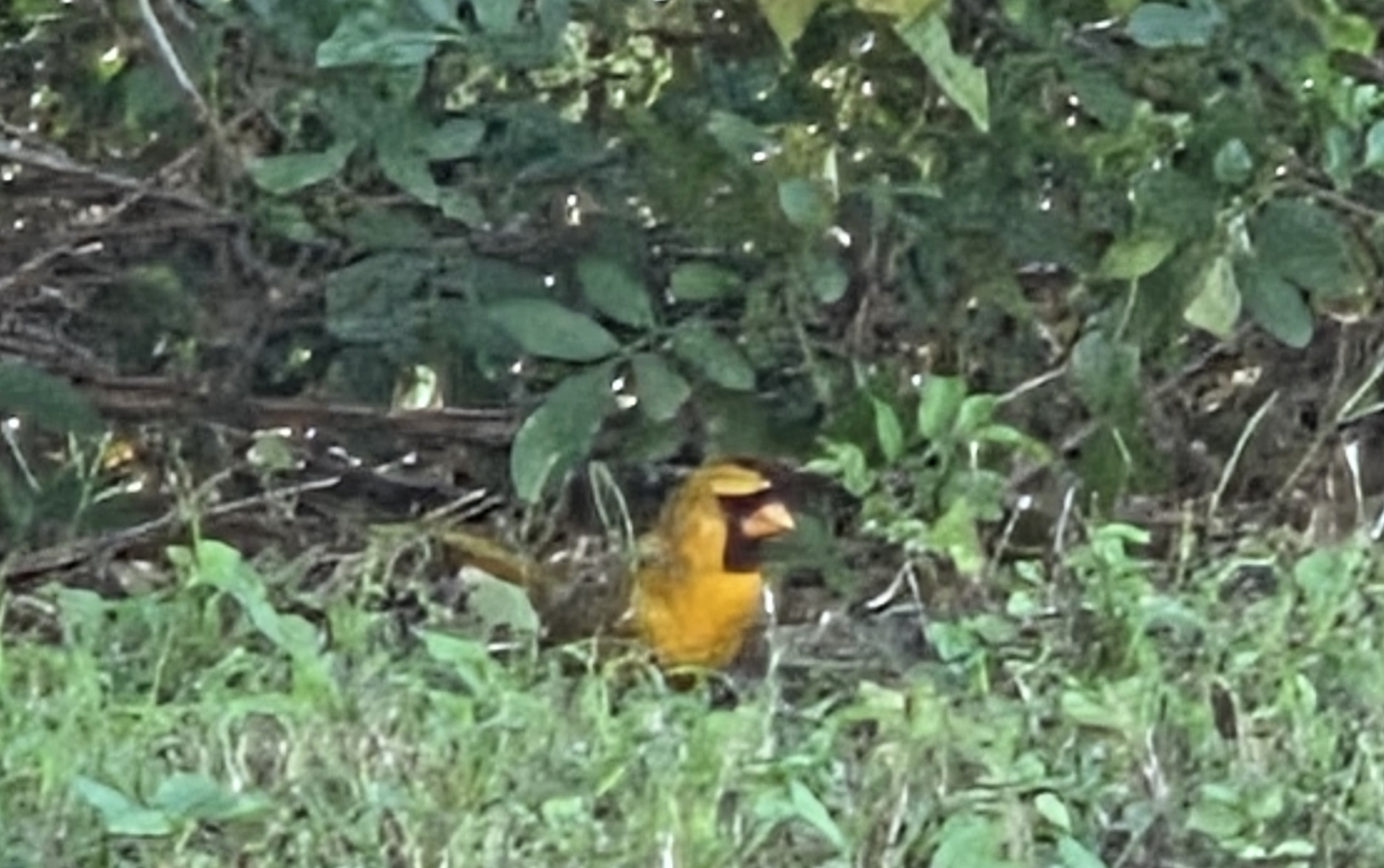
Photo by Dyane Oliva

Audio By Carbonatix
Last week, New Times reported on the sighting of a rare yellow cardinal in Coral Springs. Though they’ve been spotted at least once annually for the past few years, the odds of a cardinal being yellow are estimated to be about one in a million, so these sightings often garner lots of attention and even make national news.
The story got a big reaction from our readers: Our Instagram reel of the sighting was shared tens of thousands of times and reached more than half a million viewers.
It also sparked a lively conversation.
One common reaction:
Shiny!
Translation: The sighting reminded many readers of catching rare Pokémon.
The most common response, though, was surprising. A completely implausible number of readers swore up and down that they’d seen yellow cardinals before, or even claimed to see them “all the time” in South Florida.
Those are not rare. I see them all the time in Broward.
I have four of them around my house. They have a distinct music that they play.
Each comment showing some variation of the above was met with a handful of others commenting in agreement.
However, as we explained in our story, which included an interview with Tropical Audubon Society president José Francisco Barros, yellow cardinals are, in fact, a rarity. Their peculiar appearance is caused by a rare genetic mutation called xanthochromism, which affects the presentation of the pigments they get from their diet.
The readers who knew this — or learned it from our story — guessed at which birds our yellow cardinal spotters might have really seen instead: western tanagers, goldfinches, cedar waxwings, orioles, or — much less likely — evening grosbeaks. (Although there have been sightings in the state, South Florida is well outside their range.)
The most likely scenario:
You’re probably just seeing female cardinals. They have a dull yellowish/brownish tone with reddish wing tips. They’re definitely not yellow cardinals, although can be easily confused for one by someone who isn’t familiar with the differences.
Even python wrangler Donna Kalil stepped into the comments with a theory:
People who say they see them all the time are probably colorblind!
She might be right. One reader saw our reel and commented:
Pretty sure that’s orange